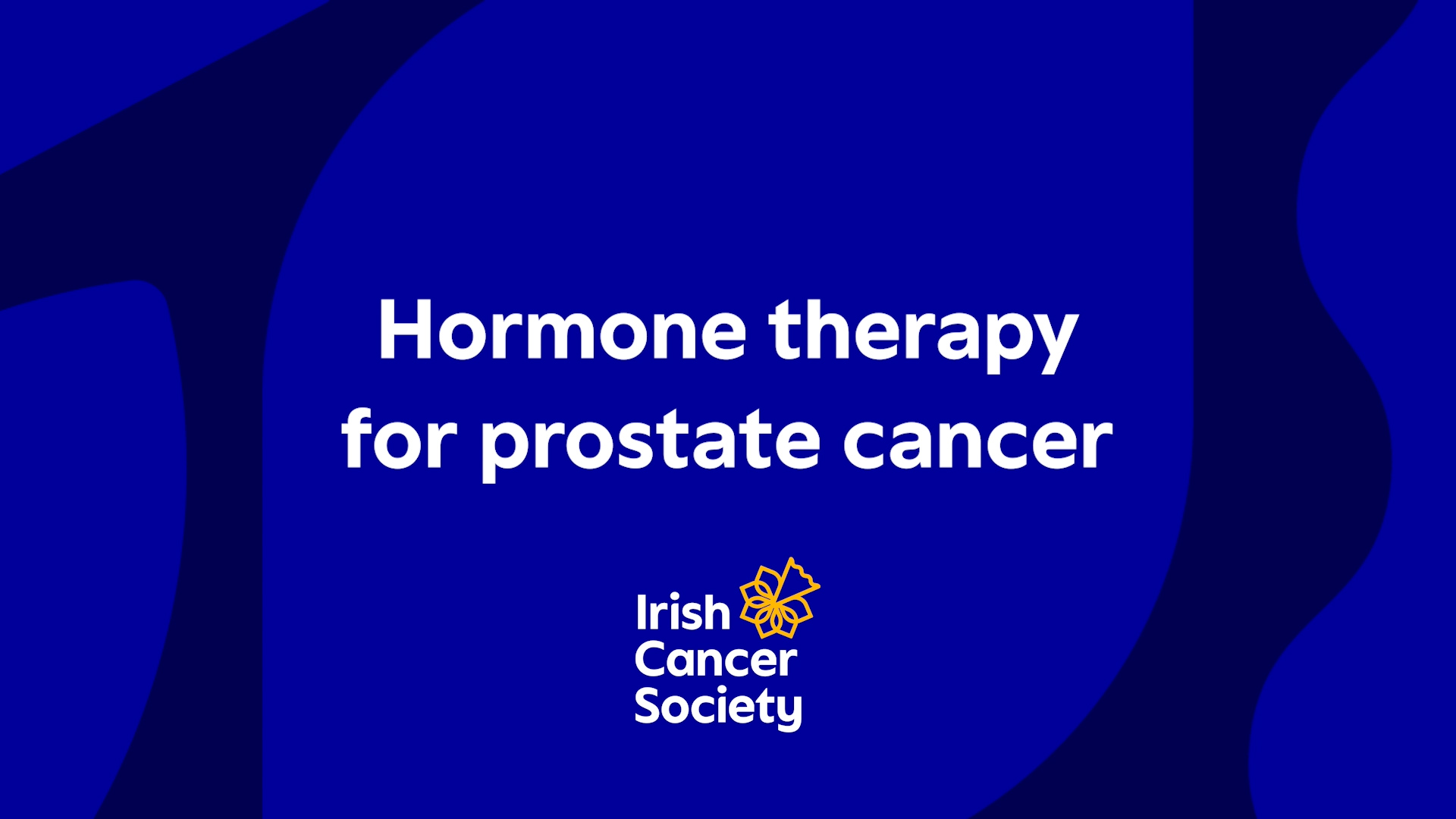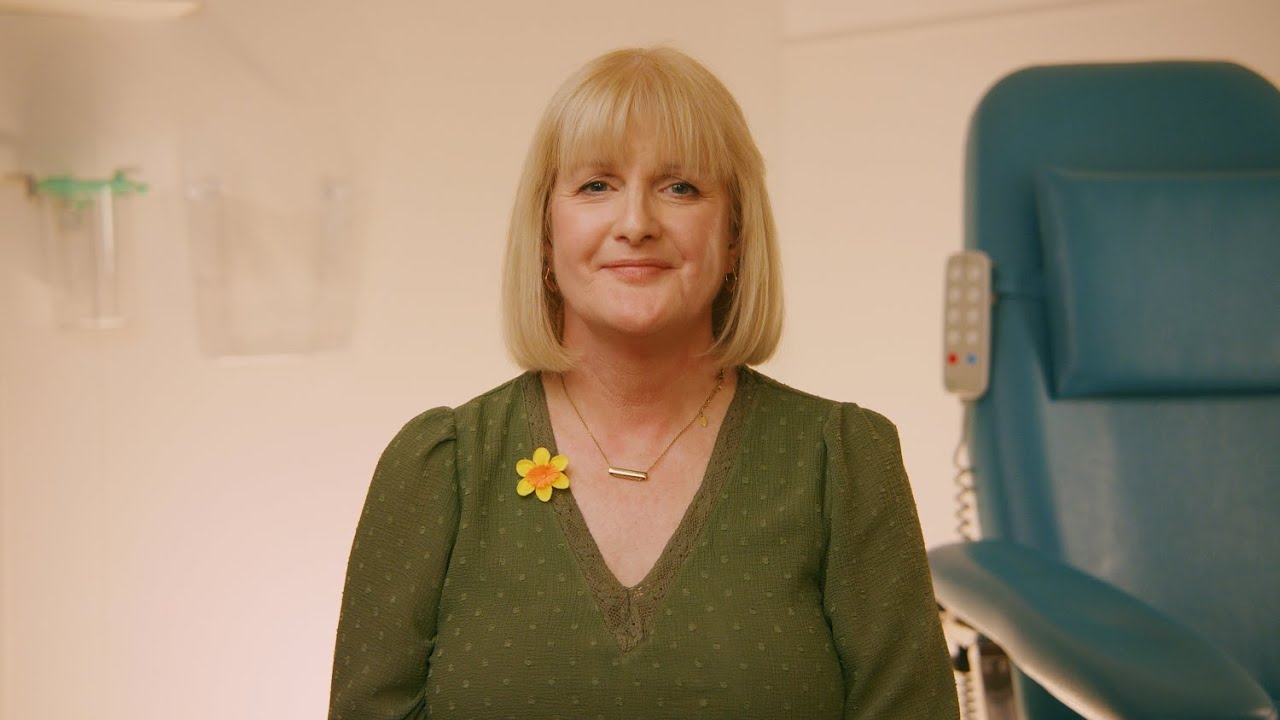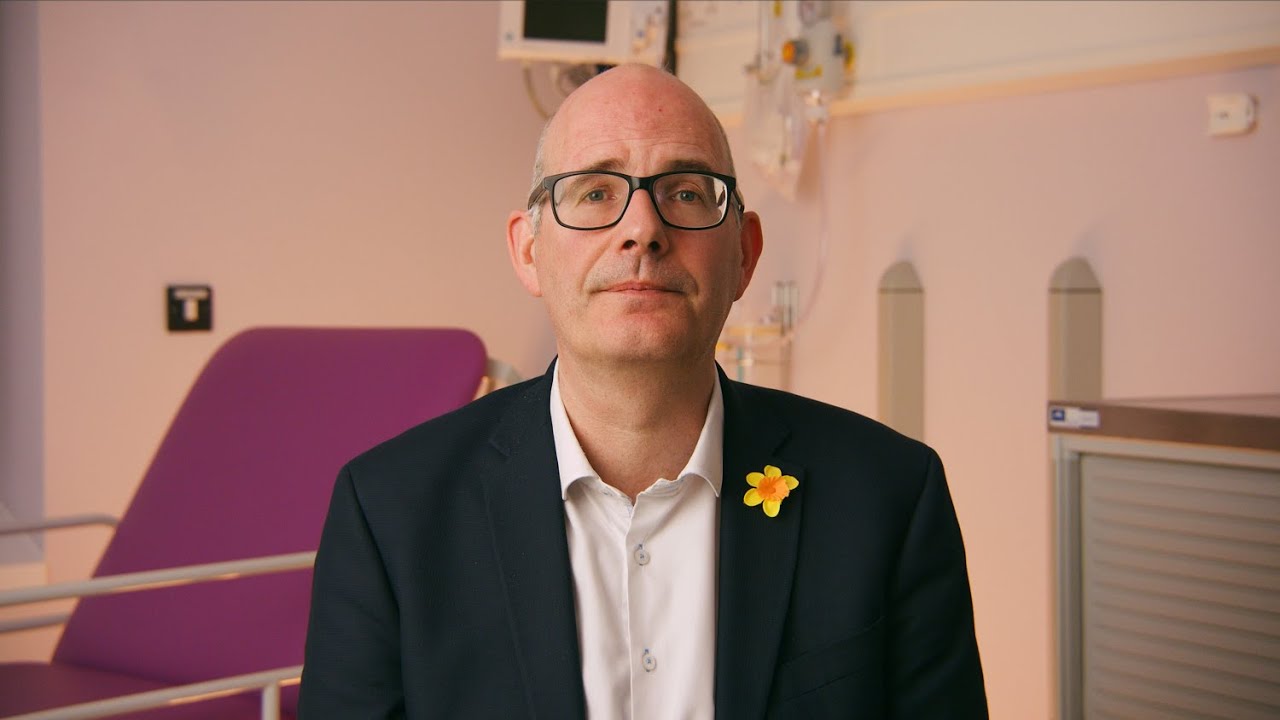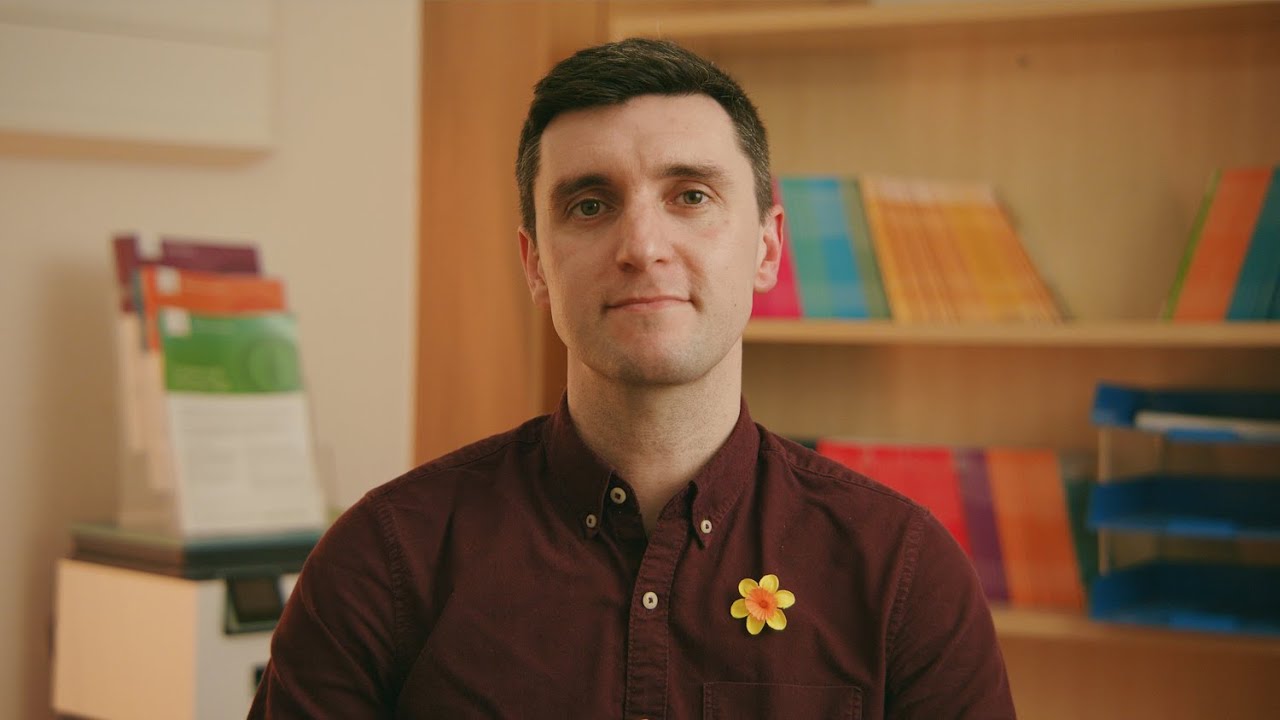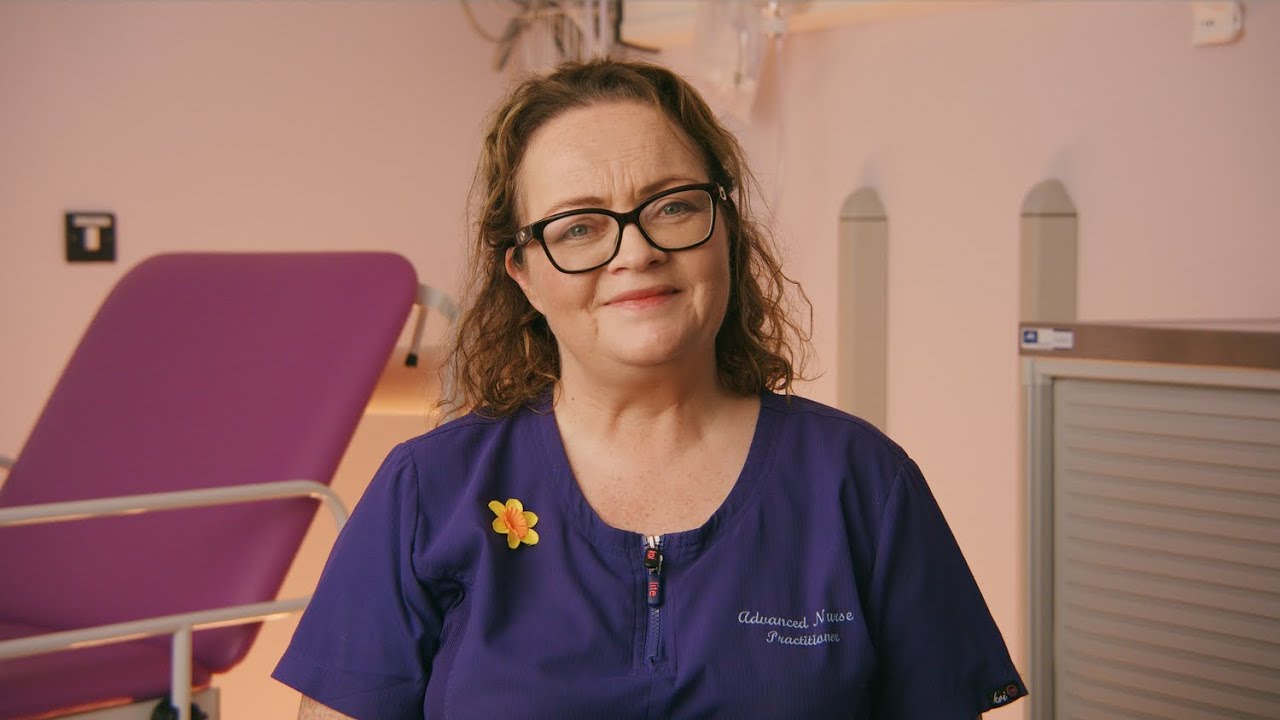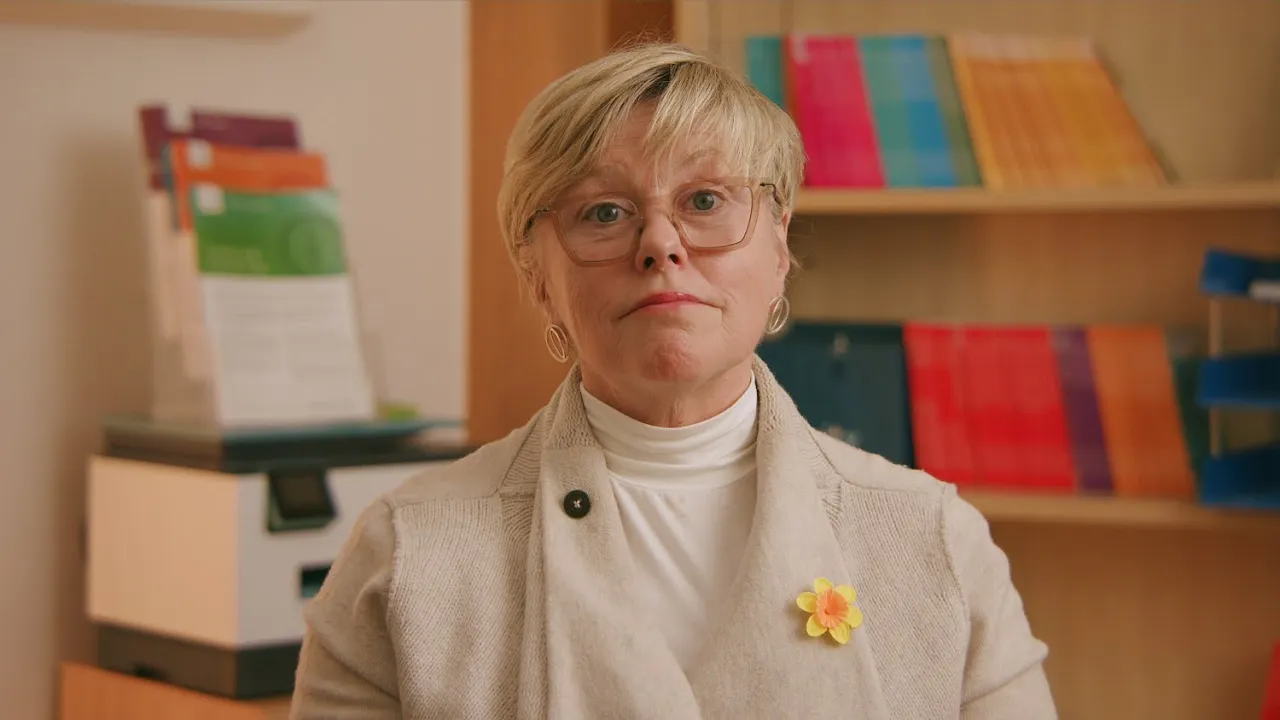Hormone therapy for prostate cancer 6: Jim's story
In this video Jim shares his personal experience of hormone therapy for prostate cancer and some advice on coping.
0:07
Hi, my name is Jim and I'm living in Kildare at the moment, in Naas, with my wife. I'm retired from the Office of Public Works. I used to work as a project manager there.
0:19
I was diagnosed with prostate cancer in early 2020. My treatment started in March of that year, so I was diagnosed, really, out of the blue. I didn't really have any of the classic symptoms, other than getting up to the loo a little bit at night time, but nothing that really would have worried me at the time.
0:40
So, I was diagnosed, really, as a consequence of another procedure that I was going through, it just happened to be picked up. And yeah, it takes a bit of getting used to, to get over that initial shock, but maybe it's because I'm a project manager, you sort of get down and decide, okay, this is where we are, we've got to deal with it now, so… What's the programme? What do we do? What are the options open to me? They’re the kind of things that I began to focus on.
1:09
Because of the biopsy results, it was quite a high-risk cancer, so there really wasn't much of a decision for me that it was going to be surgery straight away, but the urologist did make it clear to me, even before the surgery, that he felt there might be a need for further treatment after the surgery, and that would be combination of radiotherapy and hormone treatment, and that, in fact, is the way things panned out.
1:36
Hormone therapy, I mean, I looked on it as just, it's another form of treatment. It's not something that, I think there can be a perception that it's some weird kind of drug that's going to do something terrible to you as a man, but it's a treatment. It's a form of treatment. If I need it, my attitude would be, let's have it and let's see if it works.
1:59
I experienced, I suppose, all of the classic side-effects that you read about in the booklets you can get from the Irish Cancer Society, and a lot of the other support groups. I had all of them.
2:11
One that affected me most was fatigue, and it's a type of fatigue, it isn't just like being tired. It isn't just like you might feel after a long day, a day’s hard work where you've run out of energy and you need to recharge. It just, it's a different type of fatigue, you're just completely flagged. You have no incentive, no energy, no physical energy or emotional energy to actually do anything, and it comes on very quickly for no apparent reason. It's not associated with having a difficult day or whatever.
2:43
I almost welcomed the side-effects because I sort of argued with myself, well, this means that this drug is actually working, it's doing what it's supposed to do.
2:53
It was a very easy treatment to receive, actually, from that point of view, in that it was a simple injection, every 6 months, I didn't feel a thing, apart from the jab. There's no after effects from the injection at all. It just sits there and your glutes and slowly releases into your system over the 6 months.
3:14
Your body is dealing with a serious illness at this time. When you're on hormone therapy as well, your body is coping with the drug that is doing something very strange to it, in terms of suppressing your hormone, suppressing your testosterone. So, it's important, the way I looked at it was, it's important to give your body as much of a helping hand as you can, and that's where I think having a reasonably balanced diet with the usual thing, plenty fruit, plenty of vegetables, and trying to cut back on the sugars, and the processed fats and that kind of stuff. It simply is going to give your body a helping hand to deal with both the disease and the side-effects of the treatment that you happen to be on.
4:00
Reaching out for support to others is crucial as well. I've found that a fantastic support over the 2 and a half years. The Irish Cancer Society, the nurse line service, the peer-to-peer supports where you’re speaking or you're with a group of other men who have gone through similar experiences.
4:19
Hugely valuable, and there's a lot of those available at different cancer centres now throughout the country, but it's really a very reassuring experience to be with a group of men who have gone through similar experiences as yourself.
4:35
No 2 men are the same, no 2 are exactly on, had the same exact diagnosis or on exactly the same drug, but you’re going through roughly the same process, and it's really reassuring and comforting to be with men who have gone through that themselves as well.
4:54
I suppose what I would say to somebody starting hormone therapy now would be, there's nothing you can do about the fact that you have cancer. You can't control the fact that you have cancer. You can't control the fact that if you're on hormone treatment, you are going to have some side-effects, but what you can do is, you can adapt your attitude, you can control your attitude to it and you can take the positives from it. And that's generally what I try to do with it.
5:24
My experience of the hormone treatment overall is positive. Difficult at times, yeah, definitely, physically and emotionally it's difficult, but positive overall, because it has done what it's supposed to do, and for me that means a better quality of life for me now, and hopefully a longer life.
5:47
My life now, I finished the hormone therapy in the summer, early this summer, and it's fantastic. My PSA is 0.00 at the moment, which is a lovely set of figures, considering where I've come from, and I'm slowly, my body is slowly getting back to normal, in that, obviously, the testosterone is building up again to normal levels, so I'm beginning to feel a lot better, and the side-effects are a memory now, becoming a bit of a memory now.
6:18
At the moment, then, I'm good, good place at the moment and not worried about the future.
Hormone therapy for prostate cancer playlist
